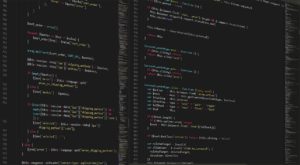Quantum computing is a type of computing that uses quantum bits or qubits, which can exist in multiple states at the same time, unlike classical bits that can only be in one state at a time. This allows quantum computers to perform certain calculations much faster than classical computers.
The fundamental unit of information in a classical computer is the bit, which can have two states: 0 or 1. A quantum computer, on the other hand, uses qubits, which can be in a state of 0, 1, or both at the same time. This is known as superposition.
In addition to superposition, qubits can also be entangled, meaning that the state of one qubit is correlated with the state of another qubit, regardless of the distance between them. This property allows quantum computers to perform certain calculations in parallel, leading to a speedup over classical computers.
Quantum computing is still in its early stages, and many practical challenges need to be overcome before quantum computers can be widely used. However, researchers are working on developing quantum algorithms and improving the technology to create more powerful and reliable quantum computers.
One example of a quantum computer is the IBM Q System One, which is a commercially available quantum computer. It has 20 qubits and can perform calculations that are not feasible on classical computers.
Another example is the D-Wave quantum annealer, which is designed to solve optimization problems. It uses a different approach than the IBM Q System One, using quantum annealing to find the lowest energy state of a system.
However, it’s worth noting that current quantum computers are still relatively small and limited in their capabilities, and many practical challenges need to be overcome before they can be widely used for practical applications. Nonetheless, researchers are actively working on developing more powerful and reliable quantum computers to enable breakthroughs in areas such as cryptography, materials science, and drug discovery.



